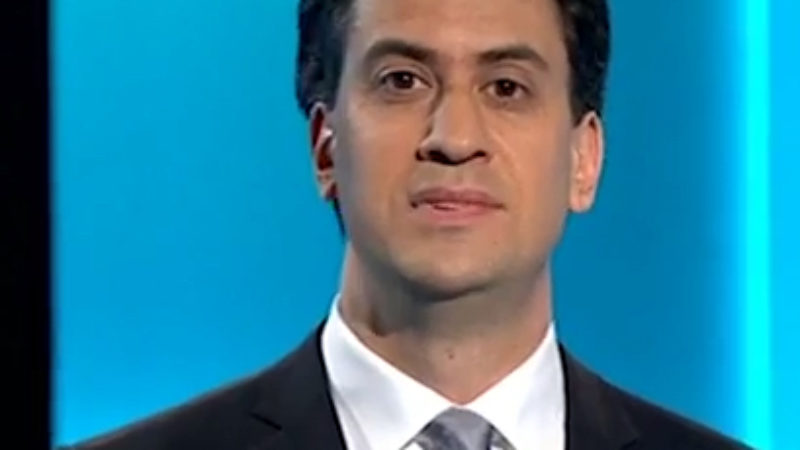

Today the Guardian’s Patrick Wintour has written an in-depth account of the lead up to Labour’s election defeat. At over 5,000 words, it’s quite a long read, so we’ve picked out some key points. Here are 5 things we learned:
1) Forgetting the deficit wasn’t the only thing wrong with Miliband’s conference speech. Miliband’s memory lapse when it came to the deficit received a great amount of attention at the time – claims that he didn’t care about the deficit abounded. It was, indeed, a fundamental error. And Miliband knew it – Wintour reveals that even before this became a major story, Miliband was “very, very angry with himself” for forgetting this passage. But a former advisor admits that this was, perhaps, easily done because there weren’t enough references to the deficit to begin with. Wintour says that Miliband was thrown off by a new opening paragraph, written the morning of the speech, focusing on ISIS. This changed introduction overwhelmed Miliband and the whole speech became an improvisation, with ideas dropped from earlier drafts finding their way into the conference hall.
2) Although often deemed a weak leader, there were two sides to Miliband. An aide told Wintour that internally Miliband had “great control”, preferring a large number of views in the room so that he could use disagreement to “get his own way.” However the accusations prior to the election, that Miliband refused to delegate beyond a very small circle, seem to be true. Wintour notes that Greg Beales (director of strategy) and Stewart Wood (senior advisor) were two of Miliband’s closest confidants but they had very different views on what Labour should offer in 2015. The former lobbied for confronting the issues of the economy and immigration, while the latter tried to convince Miliband to focus on breaking with New Labour and address inequality. Buffered by these two opposing views, it seems Miliband journeyed from Wood’s to Beales’s analysis perhaps explaining his unclear policy offer.
3) There was a plan early on to confront the Tories’ lies on the deficit but this came to nothing. The deficit and the western financial crash proved to be a big issue at the last election. The Tories claimed time and again that Labour caused the crash through overspending and therefore couldn’t be trusted with the economy. This was an argument that the Conservatives never should have won. And it seems there was a plan late in 2010 to try and ensure that they didn’t. Urged on by Alastair Campbell, Tom Baldwin (Miliband’s media adviser) planned a week-long attack on the Tories’ deception over the deficit, in which the whole shadow cabinet would have taken part. But this came to nothing more than an article in the Times because the shadow cabinet couldn’t agree on how to deal with the issue.
4) Miliband’s team didn’t realise how much of damage the Tories’ SNP line would do and complained to the BBC about coverage of this issue. After attempting to attack Labour through Miliband, the Tories finally seized on a successful line of attack: they focused on a potential coalition between Labour and the SNP. Despite the fact that the Tories were pursuing their line on nationalism (English Votes for English Laws), the party’s claim that Labour would deal with the Scottish Nationalists plagued Miliband throughout the short campaign. But Miliband’s team didn’t realise how much this would stick until it was too late. They became so desperate that Lucy Powell (campaign chair) wrote an email to the BBC’s director of news, James Harding, arguing “Your bulletins and output have become disproportionately focused on the SNP and Tory claims that Labour would enter into a deal which would damage the rest of the UK.” Meanwhile Douglas Alexander tried to convince Miliband to use a Chatham House speech to confront Cameron on the SNP – Alastair Campbell even wrote this for him – but in the end this idea was scrapped.
5) The Ed Stone only came into being because Miliband’s team were distracted by the SNP. Mocked ceaselessly in the media, Wintour reveals that no-one knows if the 8ft 6in slab of limestone (which had Labour’s six election pledges carved into it) still exists. But it’s clear that this idea made it through 10 planning meetings without being axed because Ed’s team were too distracted by the threat from the SNP.




More from LabourList
‘Ukraine is Europe’s frontier – and Labour must stay resolute in its defence’
Vast majority of Labour members back defence spending boost and NATO membership – poll
‘Bold action, not piecemeal fixes, is the answer to Britain’s housing shortage’